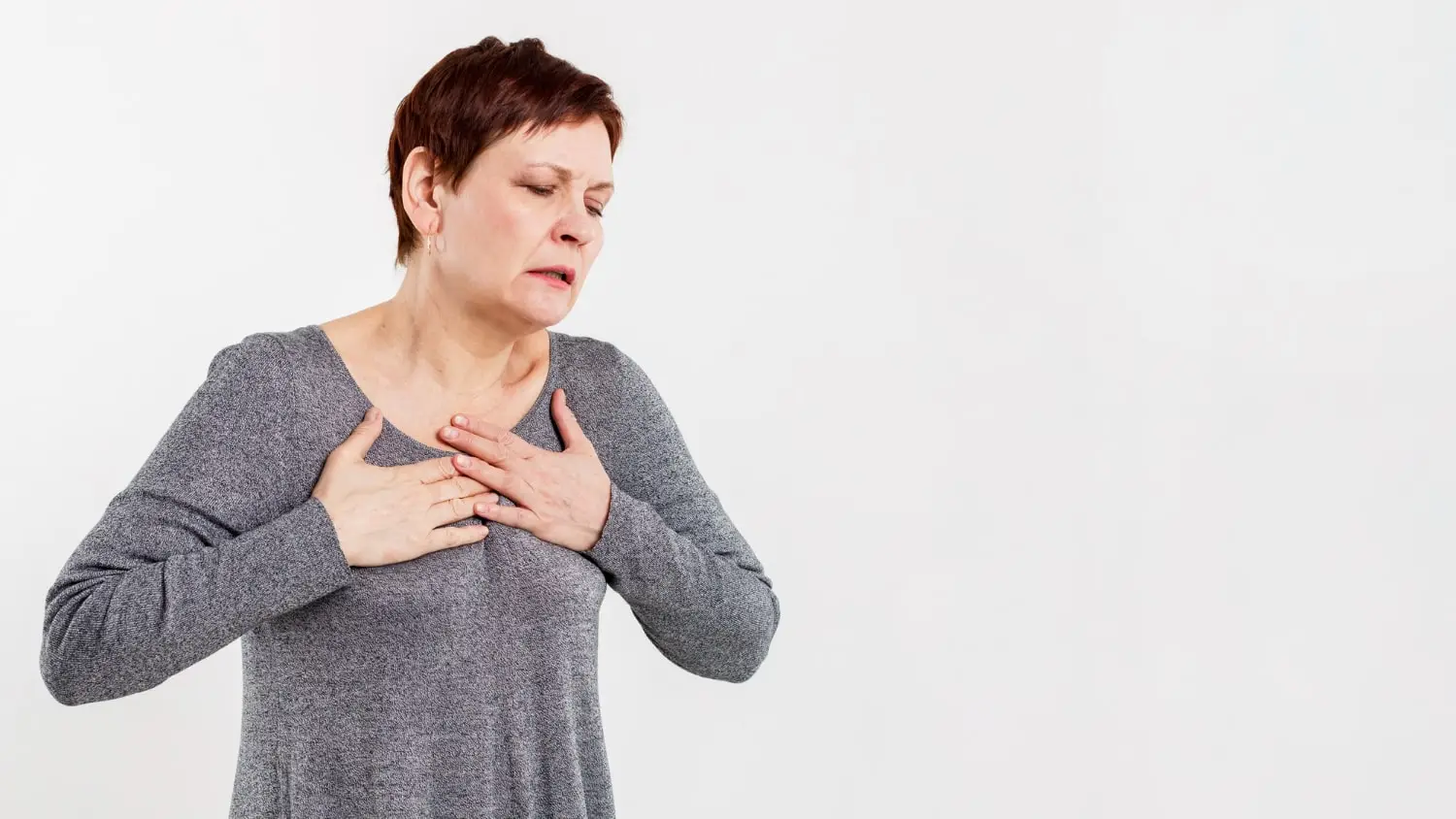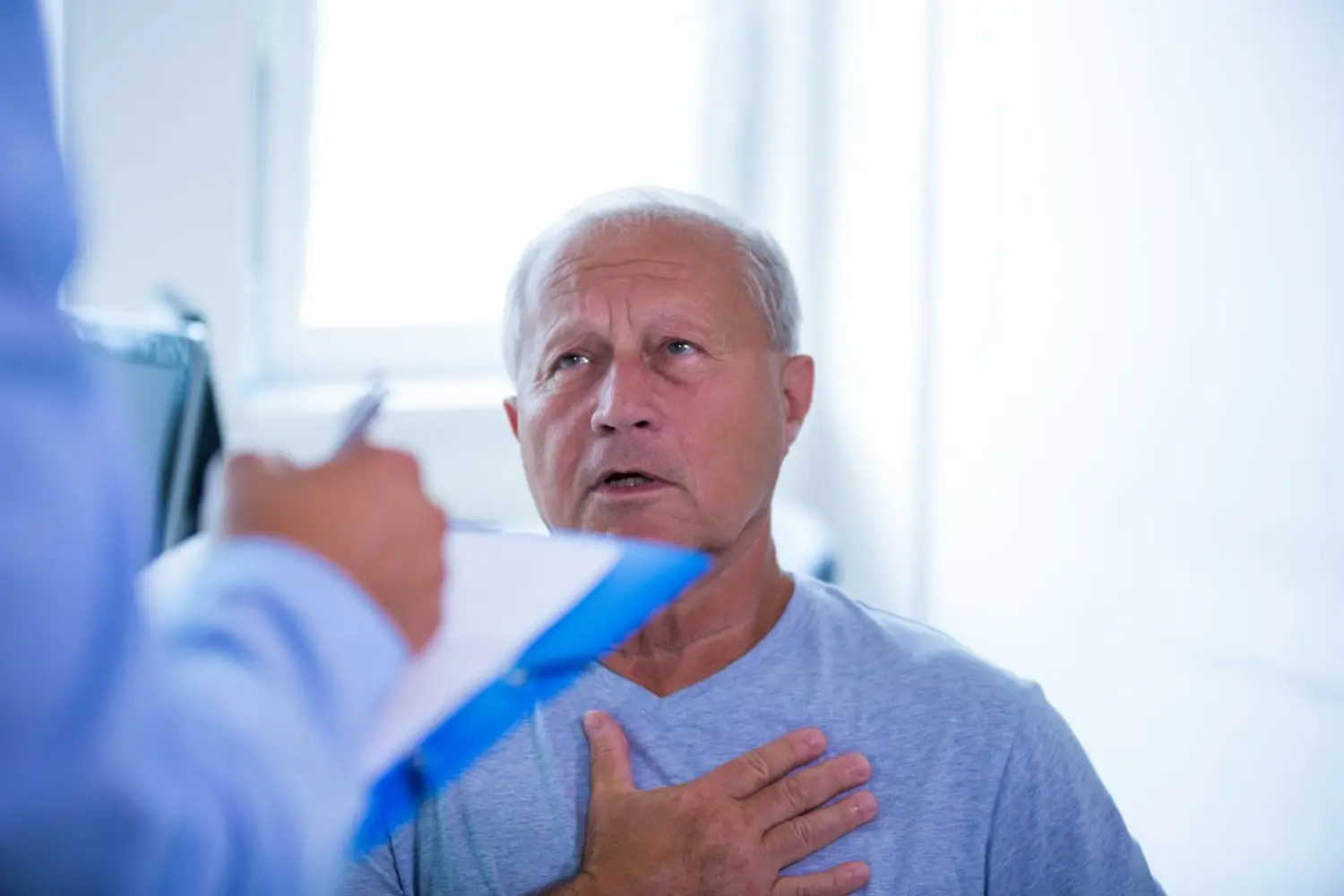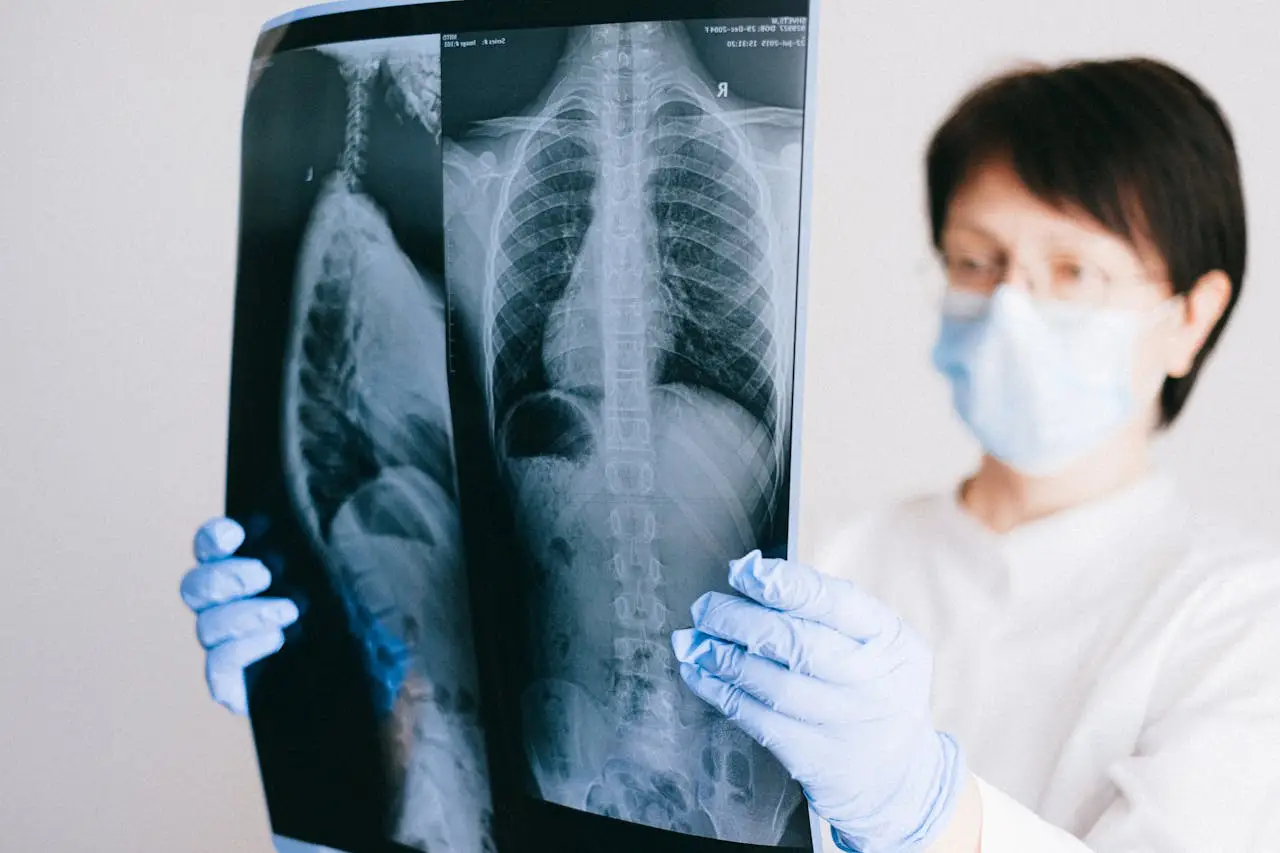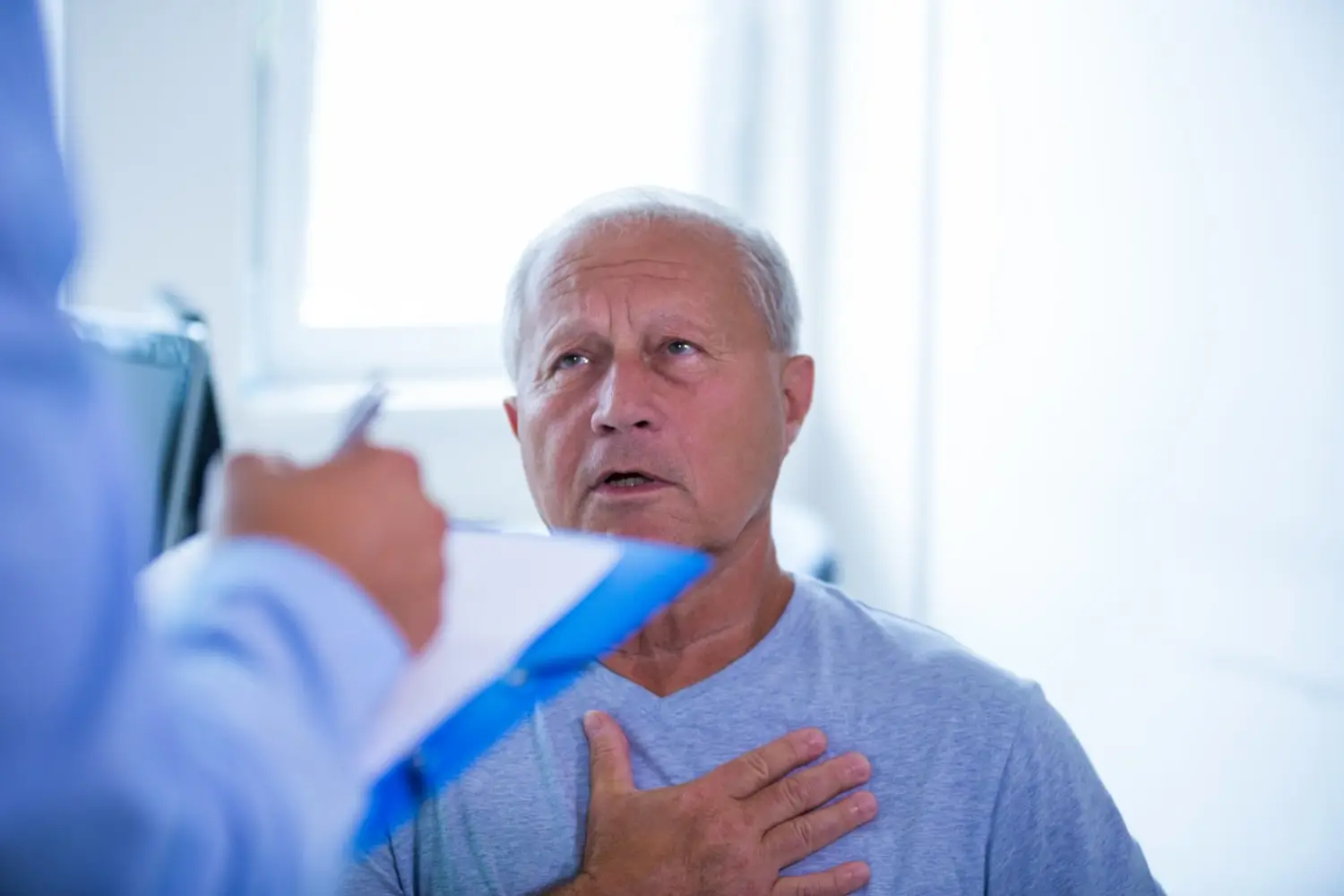Symptoms of emphysema arise due to damage to the alveoli in the lungs. The most common symptom is shortness of breath, but patients may also experience chronic cough, chest tightness, wheezing, fatigue, cyanosis, and weight loss. In advanced stages, mental confusion, depression, and heart failure symptoms may occur.
This condition, characterized by emphysema symptoms, is largely caused by environmental factors such as smoking and air pollution. However, genetic predisposition is also a factor. Treatments for patients aim to alleviate symptoms and improve their quality of life. While there is no definitive cure, surgery is rarely considered. Below, you will find detailed information about the symptoms and treatment methods of emphysema.
What Is Emphysema?

Emphysema is a condition where the alveoli in the lungs lose their elasticity and permanently expand. This loss of elasticity prevents the alveoli from expelling trapped air, leading to restricted breathing in the affected alveoli. As more lung regions are impacted, the breathing capacity significantly decreases, and shortness of breath—one of the most common symptoms of emphysema—becomes more severe.
To answer the question, “What does emphysema mean?”: It is a chronic lung disease caused by damage to the alveoli. This damage is permanent and irreversible. Depending on the damaged alveoli, there are different types of emphysema, which are detailed in the table below:
| Disease Types | Description |
|---|---|
| Centrilobular Emphysema | Also known as centriacinar emphysema. Primarily affects the upper regions and causes permanent damage to the respiratory bronchioles. Smoking is the primary cause. |
| Paraseptal Emphysema | Affects the alveoli at the farthest points. It is observed in the lung’s inner lining and lobules, increasing the risk of spontaneous pneumothorax. |
| Panlobular Emphysema | Occurs in alveoli and respiratory bronchioles. It manifests not only in the upper lung regions but also in alveoli. It is associated with alpha-1 antitrypsin deficiency. |
| Irregular Emphysema | Affects airways leading to the lungs. Often asymptomatic and does not significantly impact quality of life. Seen in cases of pulmonary fibrosis. |
| Subcutaneous Emphysema | May occur due to external trauma, allowing air trapped in the lungs to reach subcutaneous tissue. Can also be observed in COPD and asthma patients. |
Emphysema symptoms are similar across most of these types, though some, such as irregular emphysema, may be less likely to show symptoms.
What Are the Symptoms of Emphysema?
1 – Shortness of Breath
This is one of the most common and noticeable symptoms. Initially, shortness of breath occurs during physical exertion. As the disease progresses, it can also appear during rest. Trapped air in the alveoli disrupts oxygen and carbon dioxide exchange in the lungs.
2 – Chronic Cough
Commonly dry and persistent, this cough may also produce phlegm in smokers. It is caused by mucosal inflammation and irritation in the airways, often linking the disease to smoking.
3 – Chest Tightness
When air is trapped in the alveoli, chest tightness and fullness occur. Over time, this becomes more pronounced and can severely affect quality of life. This condition, known as “barrel chest,” is a significant symptom.
4 – Fatigue and Weakness
Low oxygen levels in the blood and high carbon dioxide levels result in fatigue. In advanced cases, patients may spend most of their time resting or at home.
5 – Cyanosis (Bluish Discoloration)
Severely reduced oxygen levels cause discoloration in body parts such as the lips and fingertips, making cyanosis a serious symptom of emphysema.
6 – Weight Loss
Advanced cases often involve weight loss and muscle weakness due to reduced respiratory capacity and the extra effort required to breathe.
7 – Wheezing
Narrowed airways and mucus buildup cause wheezing during breathing. Inflammation in the bronchi may also contribute to this symptom.
How Is Emphysema Treated?
Lifestyle Changes
Quitting smoking, avoiding environmental pollutants, and adopting a healthy lifestyle can significantly slow the disease’s progression.
Medications
- Bronchodilators: Inhaled medications that widen airways to ease breathing.
- Corticosteroids: Reduce airway inflammation.
- Mucolytics: Help expel mucus.
- Antibiotics: Treat any infections.
Oxygen Therapy
Oxygen support increases oxygen levels in the blood, alleviating related symptoms.
Surgery
In rare cases, surgery to remove non-functional lung tissue may be considered. Minimally invasive methods are often preferred, involving small incisions and shorter recovery times.
What is the Closed Surgery Method in the Treatment of Emphysema?
When a decision is made for surgical intervention due to emphysema symptoms, the appropriate one of two different methods, open and closed, is used. The closed method is the surgery performed through small incisions. The small incisions shorten the recovery period and reduce the risks. The following steps are followed in the closed method:
- A small incision is made into the chest cavity and the problematic areas are detected with the images obtained from the camera. At this point, the images previously obtained from imaging techniques are also used.
- The relevant areas are then cut using medical instruments.
- The problematic lung tissue is removed with great care.
- Patients stay in the hospital for an average of 3-5 days and are then discharged.
Doctor experience is critical in the closed surgery method. Prof. Dr. Semih Halezeroğlu is an experienced thoracic surgeon. You can contact us to get more information about emphysema surgery.
Frequently Asked Questions About Emphysema Symptoms
Frequently asked questions and answers about emphysema symptoms are listed below.
1 – What Is Emphysema in the Lungs?
Emphysema occurs when alveoli lose their elasticity and cannot expel trapped air, leading to reduced breathing capacity.
2 – When Do Symptoms of Emphysema Appear?
Symptoms typically start when breathing is impacted, becoming more noticeable as the disease progresses.
3 – How Long Do Emphysema Patients Live?
Life expectancy varies based on the disease’s progression, type, and severity, as well as treatment effectiveness and patient health.
4 – Is Surgery Necessary for Emphysema Treatment?
Surgery is rarely needed and is considered only in severe cases where other treatments are insufficient.
5 – Does Emphysema Cause Death?
If left untreated, emphysema can lead to severe breathing problems and potentially fatal complications.






